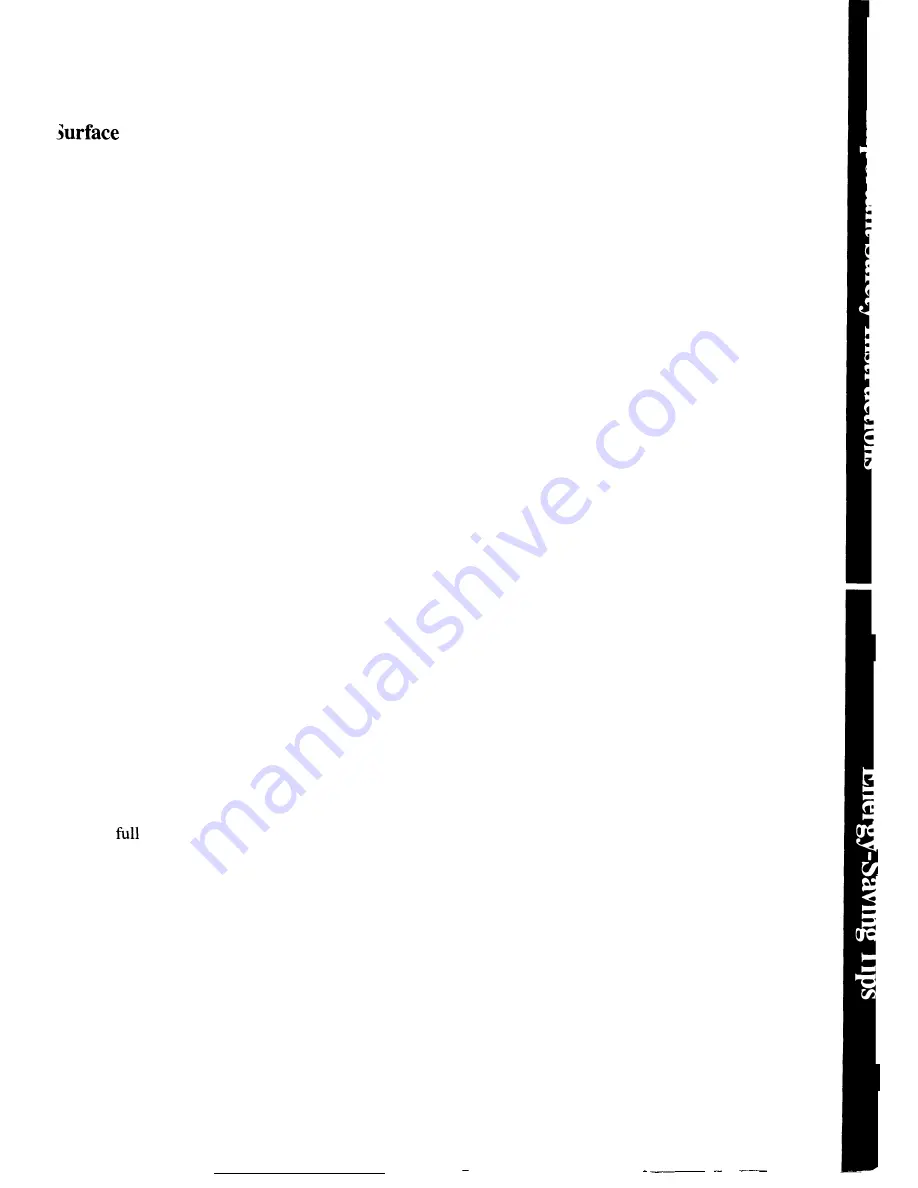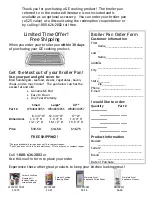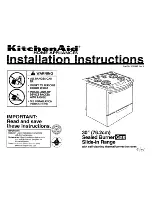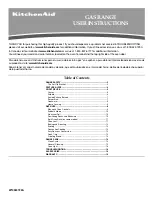
Energy-Saving Tips
Cooking
●
Use cookware of medium weight
aluminum, with tight-fitting covers,
and flat bottoms which completely
cover the heated portion of the
surface unit.
●
Cook fresh vegetables with a
minimum amount of water in a
covered pan.
●
Watch foods when bringing them
quickly to cooking temperatures at
high heat. When food reaches
cooking temperature, reduce heat
immediately to lowest setting that
will keep it cooking.
●
Use residual heat with surface
cooking whenever possible. For
example, when cooking eggs in the
shell, bring water and eggs to boil,
then turn to OFF position and
cover with lid to complete the
cooking.
●
Use correct heat for cooking task:
HI—to start cooking (if time
11
OWS
, do not use high heat to
start) .
MEDIUM HI—quick browning.
MED—s1ow frying.
WARM—finish cooking most
quantities, simmer-double boiler
heat, finish cooking, and special
for small quantities.
Oven Cooking
●
Preheat oven only when
necessary. Most foods will cook
satisfactorily without preheating.
If you find preheating is necessary,
watch the indicator light, and put
food in oven promptly after the
light goes out.
●
Always turn oven OFF before
removing food.
●
During baking, avoid frequent
door openings. Keep door open as
short a time as possible if it is
opened.
●
Cook complete oven meals
instead of just one food item.
Potatoes, other vegetables, and
some desserts will cook together
with a main-dish casserole, meat
loaf, chicken or roast. Choose
foods that cook at the same
temperature and in approximately
the same time.
●
Use residual heat in the oven
whenever possible to finish
cooking casseroles, oven meals,
etc. Also add rolls or precooked
desserts to warm oven, using
residual heat to warm them.
LO—to maintain serving
temperature of most foods.
●
When boiling water for tea or
coffee, heat only amount needed.
It is not economical to boil a
container
of water for one
or two cups.
5
Summary of Contents for JAS02M
Page 25: ...Notes 25 ...
Page 26: ...Notes 26 ...






































